第3章
It was my misfortune to go to this out-of-the-way spot alone. I was duly sensible of my commiserable state at times. Indeed, in those strange flashes of dual consciousness when a man sees his own condition as if it were another's, I pitied myself right heartily;for I hold that travel is like life in this, at least, that a congenial companion divides the troubles and doubles the joys.
To please one's self is so much harder than to be pleased by another;and when it comes to doubt and difficulty, there are drawbacks to being one's own guide, philosopher, and friend. The treatment is too homoeopathic by half.
An excuse for a companion existed in the person of my Japanese boy, or cook. He had been boy to me years before; and on this return of his former master to the land of the enlightened, he had come back to his allegiance, promoting himself to the post of cook. During the journey he acted in both capacities indifferently,--in one sense, not in the other. In addition to being capable he was willing and of great endurance. Besides, he was passionately fond of travel.
He knew no more about Noto than I, and at times, on the road, he could not make out what the country folk said, for the difference in dialect;which lack of special qualification much increased his charm as a fellow-traveler. He neither spoke nor understood English, of course, and surprised me, after surprising himself, on the last day but one of our trip, by coming out with the words "all right." His surname, appropriately enough, meant mountain-rice-field, and his last name --which we should call his first name--was Yejiro, or lucky-younger-son. Besides cooking excellently well, he made paper plum blossoms beautifully, and once constructed a string telephone out of his own head. I mention these samples of accomplishment to show that he was no mere dabbler in pots and pans.
In addition to his various culinary contrivances we took a large and motley stock of canned food, some of his own home-made bread, and a bottle of whiskey. We laid in but a small supply of beer; not that I purposed to forego that agreeable beverage, but because, in this Europeanized age, it can be got in all the larger towns. Indeed, the beer brewed in Yokohama to-day ranks with the best in the world.
It is in great demand in Tokyo, while its imported, or professedly imported, rivals have freely percolated into the interior, so popular with the upper and upper middle classes have malt liquors become.
Nowadays, when a Japanese thinks to go in for Capuan dissipation regardless of expense, he treats himself to a bottle of beer.
These larder-like details are not meant to imply that I made a god of my palate, but that otherwise my digestion would have played the devil with me. In Japan, to attempt to live off the country in the country is a piece of amateur acting the average European bitterly regrets after the play, if not during its performance. We are not inwardly contrived to thrive solely on rice and pickles.
It is best, too, for a journey into the interior, to take with you your own bedding; sheets, that is, and blankets. The bed itself Yejiro easily improvised out of innumerable futons, as the quilts used at night by the Japanese are called. A single one is enough for a native, but Yejiro, with praiseworthy zeal, made a practice of asking for half-a-dozen, which he piled one upon the other in the middle of the room. Each had a perceptible thickness and a rounded loglike edge; and when the time came for turning in on top of the lot, I was always reminded of the latter end of a Grecian hero, the structure looked so like a funeral pyre. When to the above indispensables were added clothes, camera, dry plates, books, and sundries, it made a collection of household gods quite appalling to consider on the march. I had no idea I owned half so much in the world from which it would pain me to be parted. As my property lay spread out for packing, I stared at it aghast.
To transport all these belongings, native ingenuity suggested a thing called a yanagigori; several of them, in fact. Now the construction of a kori is elementally ingenious. It consists simply of two wicker baskets, of the same shape, but of slightly different size, fitting into each other upside down. The two are then tied together with cord.
The beauty of the idea lies in its extension; for in proportion as the two covers are pulled out or pushed home will the pair hold from a maximum capacity of both to a minimum capacity of one. It is possible even to start with more than a maximum, if the contents be such as are not given to falling out by the way. The contrivance is simply invaluable when it comes to transporting food; for then, as you eat your way down, the obliging covers shrink to meet the vacuum.
If more than one kori be necessary, an easy step in devices leads to a series of graded sizes. Then all your baskets eventually collapse into one.
The last but most important article of all was my passport, which carefully described my proposed route, and which Yejiro at once took charge of and carried about with him for immediate service; for a wise paternal government insisted upon knowing my intentions before permitting me to visit the object of my choice.